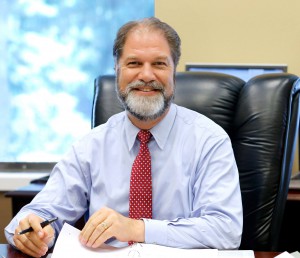 Yesterday, Governor Jerry Brown released his 2016-17 budget proposal to the legislature, and in that budget he anticipates approximately $7.6 billion in new spending over the previous year’s approved budget.
Yesterday, Governor Jerry Brown released his 2016-17 budget proposal to the legislature, and in that budget he anticipates approximately $7.6 billion in new spending over the previous year’s approved budget.
The fact that we have increased revenues to the state should be good news for California taxpayers, as the additional funds should take away any pressure to raise taxes.
But, that’s not how Sacramento logic works.
In addition to incorporating the increasing revenues, the Governor’s budget also renews the call for even more taxes – bringing back the car tax and further increasing the gas and diesel taxes – and using those tax increases to address the lack of maintenance of our highways and bridges.
That’s where we’ll see the early battle lines being drawn between Republicans and legislative Democrats.
Last year, we pointed out that California already has the nation’s 4th highest gas tax, and when the new cap-and-trade taxes are added in, the state’s gas tax, and gas prices, are the nation’s highest.
We also pointed out that, in the 6 years following the Great Recession, gas tax revenue grew by $1.75 billion, but road spending remained stagnant.
And, we presented data that showed California’s road spending efficiency needs work. California currently spends three times the national average on maintenance per mile of roadway, yet our roads continue to rank among the worst in pavement condition and congestion.
We are constantly reminded that one-third of the state’s residents now live at or below the poverty line. The last thing these Californians need is even higher taxes to pay for road repairs – repairs that should already be covered by current gas tax revenues.
Another ongoing battle line is the Governor’s call for a managed care organization (MCO) tax. When asked to explain this tax by a reporter, the Governor politely declined because he felt it was too complex to discuss.
Let me try to describe what is occurring. The United States government wants California to tax managed healthcare providers to pay a state tax that will be matched by Federal funds. The Governor claims that it will be a wash. That is not accurate, but we have yet to see the details that have been negotiated between the Governor’s office and major healthcare providers, like Kaiser Permanente. But, expect your already high medical premiums to increase should this tax be approved.
Throughout his budget presentation, the Governor made one thing clear. There apparently is not enough in revenues to meet the state’s needs, and Republicans’ unwillingness to support tax increases for roads and federal matching health care dollars is real the problem.
What?
The Governor is increasing the annual budget by more than $7 billion, but he could not allocate funding to these two critical areas?
California is already the least economically-competitive state in the nation. Our regulatory and tax rates are among the highest. Businesses and higher-wage jobs continue relocating out-of-state. For the 11th year in a row, California was named the worst state for business in a survey of 500 CEO’s by Chief Executive Magazine.
The worst thing we can do for our economic competitiveness and for working families is to continue adding even more taxes. That difference on taxes should be the defining issue between the two parties in the 2016 legislative session.
Taxes are high enough. It’s time to protect the families in this state from paying a high tribute just because the weather is great.
This Republican, along with my colleagues, are standing in the breach for California’s families. If roads and health care are important to Governor Brown, then his budget would have reflected that priority. It does not.

